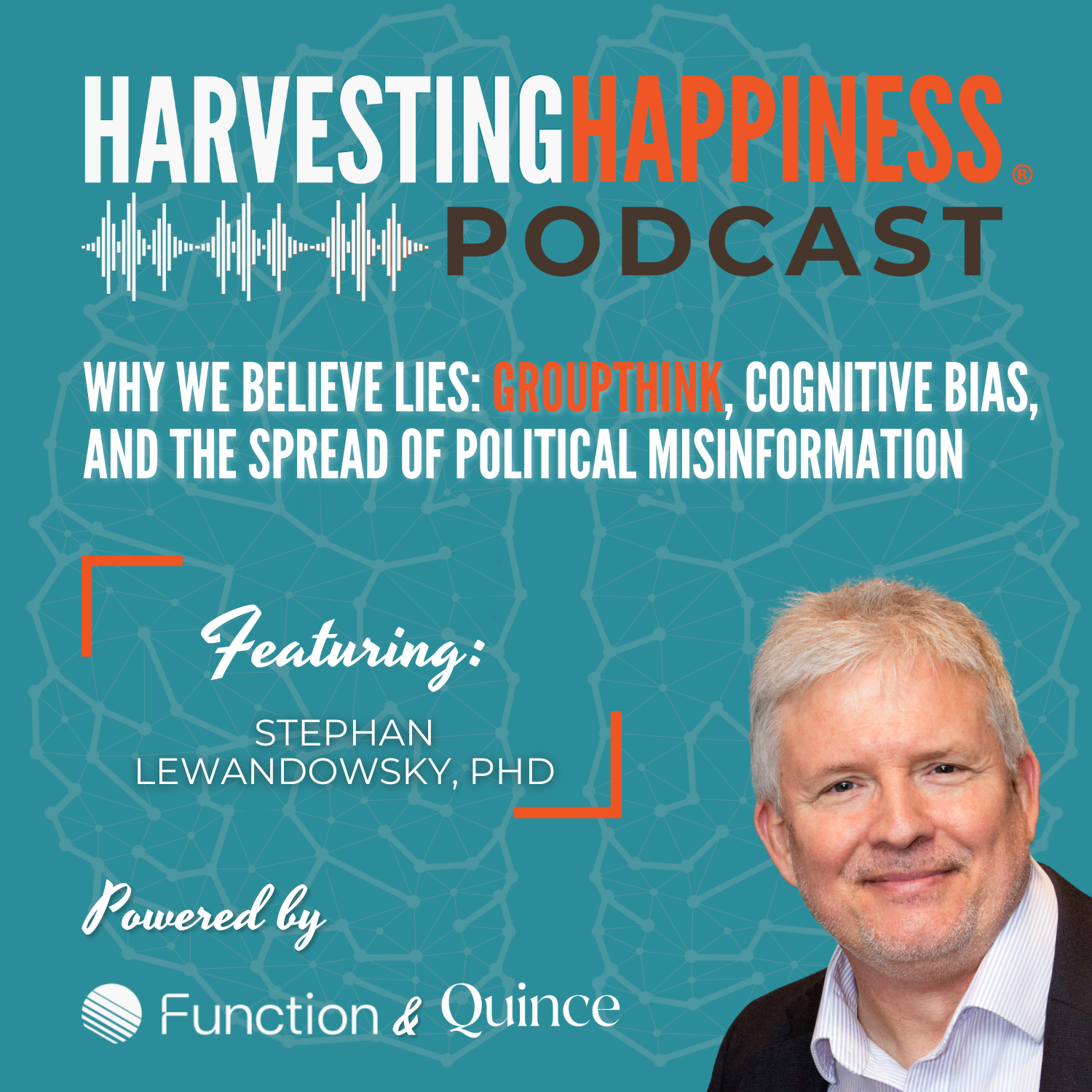
The pervasive nature of social media can undermine the democratic process by facilitating the widespread dissemination of political misinformation and a decline in critical thinking. This phenomenon can be exacerbated by groupthink, where individuals conform to the prevailing opinions of their social circles, and various forms of cognitive bias that lead people to favor information confirming their existing beliefs, even in the absence of evidence.
To better understand the power of groupthink and cognitive bias, Harvesting Happiness Podcast host Lisa Cypers Kamen speaks with cognitive scientist and Cognitive Immunity Research Collaborative (CIRCE) researcher Dr. Stephan Lewandowsky.
Stephan shares his research on how alternative facts gain acceptance, how technology can undermine the democratic process, and tips on how to discern truth from fiction when consuming media.
This Episode is Proudly Sponsored by:
Function Health—Offers a revolutionary platform putting healthcare technology in our hands to live 100 healthy years. Get $100 off membership. Visit
www.functionhealth.com/HH or use gift code HH100.
Quince—Offers high-quality essentials, home decor, and furnishings at radically low prices. Visit
quince.com/hhpod for free shipping on your order and a 365-day return policy.
Stephan Lewandowsky, PhD—Why We Believe Lies:
- How technology influences democracy. {2:52}
- How technology and social media can undermine the democratic process. {5:48}
- The architecture of honesty and how political misinformation becomes widely adopted. {7:47}
- Democracy crumbles when beliefs take precedence over evidence. {18:46}
- Tips for building resilience against political misinformation. {23:41}
Meet Our Guest:
Professor Stephan Lewandowsky, PhD, is a cognitive scientist at the University of Bristol, UK. His research focuses on human memory, decision-making, and the influence of misinformation on public beliefs and behaviors. Stephan’s work primarily explores how false information spreads, why people believe in conspiracy theories, and how to effectively debunk misinformation.
Professor Lewandowsky has published hundreds of scholarly articles, chapters, and books and is often cited for his subject matter expertise. Journals like Nature Human Behaviour, Nature Communications, and Psychological Review regularly publish his research.
"What we think and what we feel are often disconnected from fact." - Lisa Cypers Kamen
Return to the Harvesting Happiness Podcast Page

















